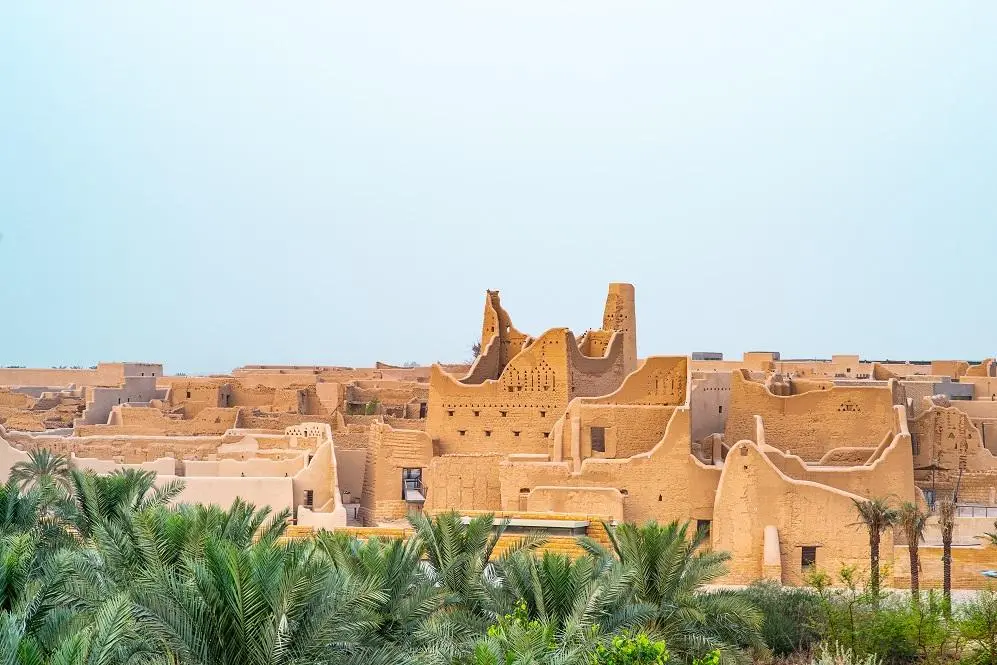PHOTO
The primary objective of the new project is to end the practice of burning agricultural waste, thus reducing carbon emissions in line with the pledges made at the Saudi Green Initiative in October 2021, which committed the Kingdom to reducing its carbon emissions to net zero by 2060.
Burning agricultural waste is known to cause significant health and environmental problems as well as squandering a natural renewable resource. Preventing this practice in Diriyah will contribute to the improvement of public health in the area through the reduction of pollutants.
DGDA has decided that the residue from this waste will undergo a process that will transform it into useful agricultural products such as fertilizer or animal feed, which can produce notable economic returns, thereby benefiting both the local environment and local farm owners.
To create animal feed, the process is simple but effective. It begins with the collection and drying of the palm tree waste, which is then ground down into a powder. The powder is mixed with conventional animal feed in bags and stored.
Alanoud Al-Saud, a community engagement specialist at the DGDA, said of the new initiative: “Crown Prince Mohammed bin Salman has announced the Kingdom’s plan to fulfil its global climate obligations by cutting carbon emissions to net zero by 2060. We in Diriyah are proud to do our part to realize this vision, making sure that local people have the chance to involve themselves in a transformative practice that will change agricultural waste into more of a blessing than a burden.”
Almotasem Alkhamis, another DGDA community engagement officer, echoed Alanoud’s remarks, adding: “We at DGDA have a responsibility to the local community to improve their well-being and ensure that Diriyah is always a healthy, environmentally friendly place to live. Turning this waste into a useful agricultural project instead of fuel for a fire takes us one step closer to being a shining example of Saudi sustainability.”
To put this initiative into action, DGDA has partnered with King Saud University and the Saudi Basic Industries Corp. to provide training sessions for local farmers. The research team visited each participating farm in Diriyah to demonstrate the best practices for the production of animal feed pellets and compost.
Copyright: Arab News © 2022 All rights reserved. Provided by SyndiGate Media Inc. (Syndigate.info).





















